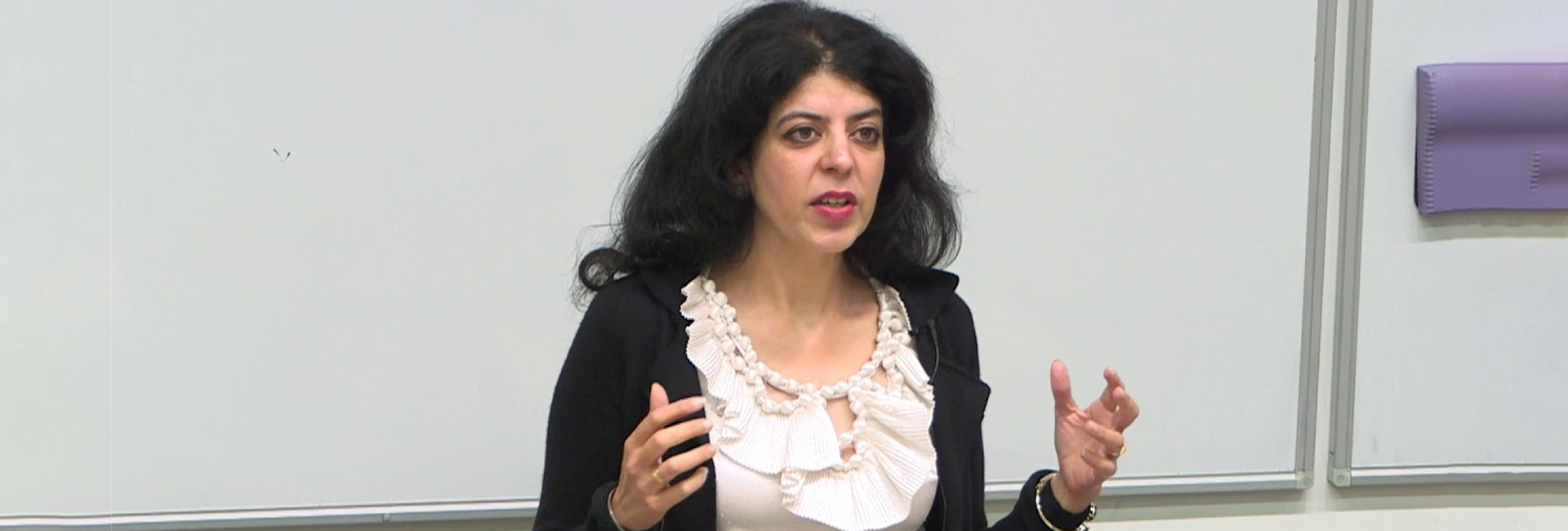(January 11, 2023) For the past several generations, British historians have deconstructed and reimagined world history to suit the Empire’s narrative. Their tales of development in various colonies of the empire across the globe – including India, the Middle East, Africa, and the Caribbean – licensed the brutal suppression of the colonial rebellion by imperial governance. While these narratives still echo in world history, author Priya Satia’s latest release, Time’s Monster: History, Conscience, and Britain’s Empire, examines how the British historians not only twisted the fate of colonial politics but also shaped the futures of generations to come.

Priya Satia, author
“It shaped my family’s history and so much of the world, and I felt I could contribute – and correct influential myths – from the United States,” the author shared during an interview while answering why it was important for her to write this book. The award-winning author of Empire of Guns: The Violent Making of the Industrial Revolution and Spies in Arabia – Priya compels her readers to look into the parts of world history that generally are never discussed. The Raymond A. Spruance Professor of International History and Professor of British History at Stanford University, the Global Indian regularly writes for various media outlets including Financial Times, The Nation, and Washington Post.
The Arabian conquest
A Ph.D. scholar from the University of California, Berkeley, Priya grew up in Los Gatos, amidst a lot of books. An avid reader, she was always curious to know about the past of the nation to which she belongs – India. And it was this passion which led her to write several books on the British Raj in the country. In 2008, Priya released her first book, Spies in Arabia: The Great War and the Cultural Foundations of Britain’s Covert Empire in the Middle East, which was well-received not just by the audience, but also by the critics.
In a recent interview, the author discussed why she chose to write about events in the Middle East. “I had an interest in South Asia before I had an interest in the Middle East. I was looking into the Indian Army, which did most of the fighting in Iraq during World War I, and became distracted by the Indian Army’s British officers. They arrived thinking that they were in the land of the Arabian Nights, that this place was mysterious and unknowable. But they were there to perform very practical tasks. I became curious how their cultural outlook shaped what they did and how they did it.”
Uncovering several conspiracy theories, the author shares how off-base the British were and how outlandishly exaggerated their theories. “When I wrote Spies in Arabia, I was so sure that the British were so wrong in what they assumed about native inhabitants that I didn’t pay enough attention to their actual interactions. This dimension comes out more in my current work on global anticolonial networks than it did in Spies. I’m now looking at the conspiracy theory chapter from the other side, in a sense,” she said.
The bloody history of India
While it is not talked about or portrayed in world history, that the British were barbaric towards Indians is a truth that needs no further proof. And yet, everyone seems to have turned a blind eye toward the actual events of the time. Priya, however, shares that it was very important for her to uncover this part of history and present it to the world. “In public memory, redemptive myths about colonial upliftment persistently mask the empire’s abysmal history of looting and pillage, policy-driven famines, brutal crushing of the rebellion, torture, concentration camps, aerial policing, and everyday racism and humiliation,” the author explained in the book Empire of Guns, adding, “To be sure, there is a story about the ‘banality of evil’ to be told— about the automatic, conformist ways in which ordinary people become complicit in inhumanity. But in the case of the British Empire, the bigger story is perhaps that of inhumanity perpetrated by individuals deeply concerned with their consciences, indeed actively interrogating their consciences.”
The book earned Priya the 2019 Pacific Coast Conference on British Studies Book Prize, the Wadsworth Prize in Business History, and the AHA’s Jerry Bentley Prize in world history. “Empire of Guns told the story of a very important eighteenth-century gunmaker named Samuel Galton. As a Quaker, he was forced to defend his gun-making to fellow Quakers who felt it violated the sect’s pacifist commitments,” shared the author, who was also the finalist for the LA Times Book Prize in History and shortlisted for the Laura Shannon Prize in Contemporary European Studies and the PEN Hessell-Tiltman Prize.
The author, who is also the curator of several tailored history seminars, wants young people to read and understand history from an unbiased point of view. “To those hoping to enter the world of history, I would suggest coming in with a strong, uncompromising sense of the purpose of that entry, else the academy will instill its own values of personal professional advancement, which are designed to perpetuate institutions as they exist now,” the author shared during a class.
- Follow Prof Priya Satia on Twitter
Also Read: Atul Koul Randev: Tech executive to bestselling Indian author


